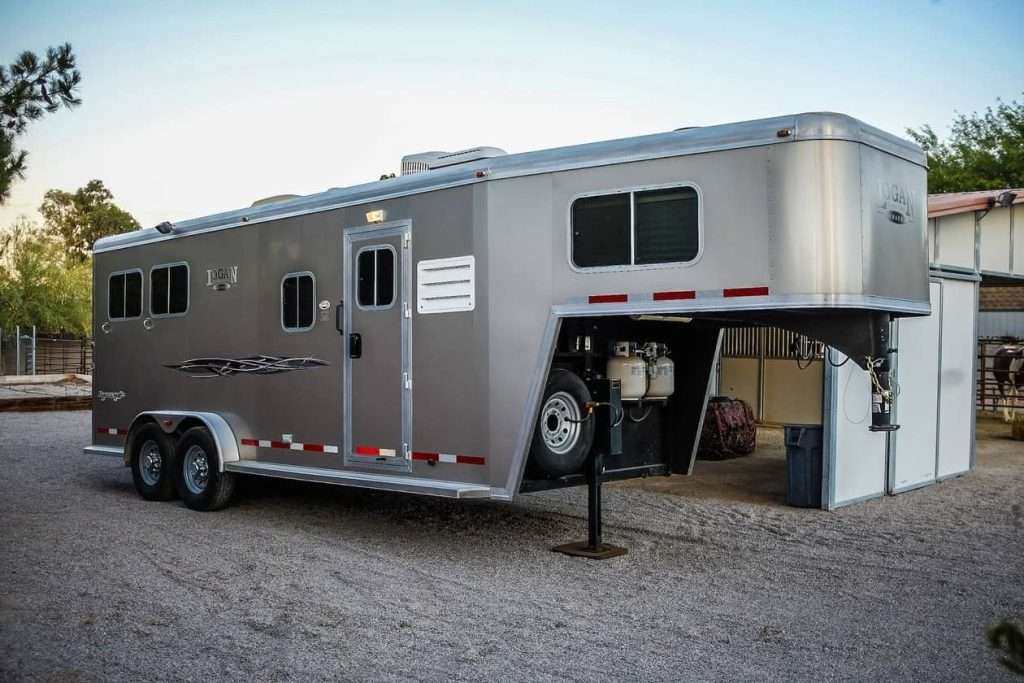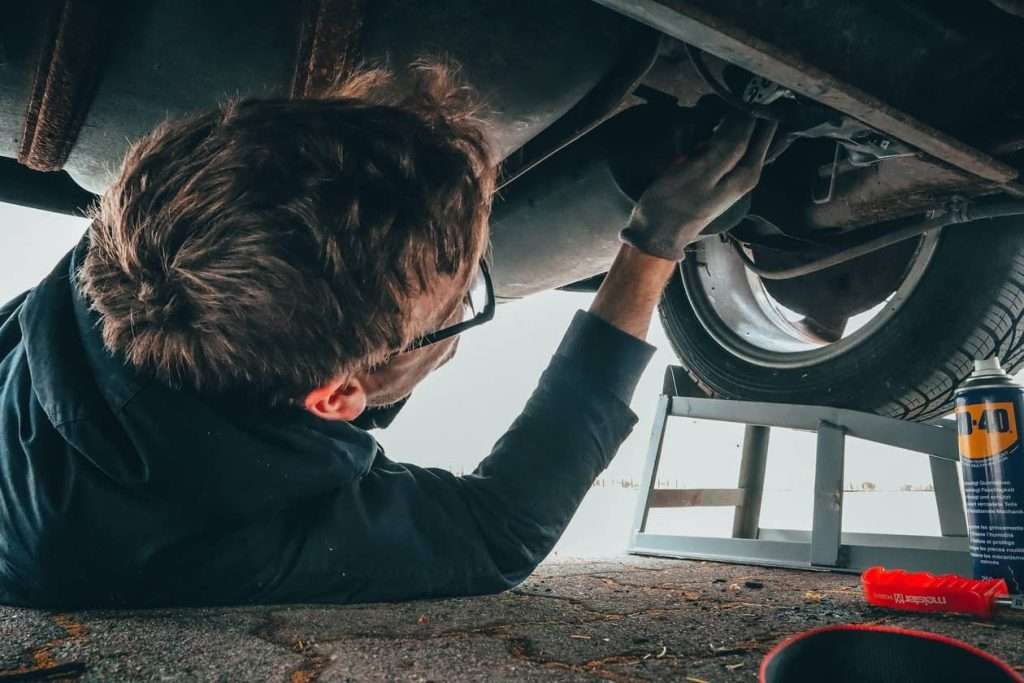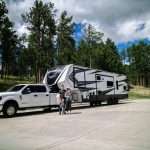
How Much Is An RV Inspection In Texas? — What You Need To Know In 2023
If you’re a current RV owner like myself or are simply thinking about purchasing an RV, understanding the cost of inspections is crucial for budgeting and ensuring compliance with state regulations. So, just how much is an RV inspection in Texas?
Honestly, the price is the least daunting part of an RV inspection in Texas. This comprehensive article will provide an overview of the inspection process and offer insights to help you navigate this important aspect of RV ownership.
Whether you’re a seasoned RV enthusiast or a first-time buyer, join me as I shed light on what you can expect when it comes to RV inspections in Texas.

So How Much Is An RV Inspection In Texas?
Fortunately, the inspection comes at an incredibly affordable price of $7, regardless of whether you own a motorcycle, car, truck, or RV. This fair and reasonable cost ensures that obtaining the necessary inspection is accessible to all vehicle owners.
The duration of an RV inspection in Texas can vary depending on several factors, including the RV’s type and size, the inspection’s complexity, and the specific inspection station’s workload. However, that being said, your RV inspection should generally be completed within 30 minutes.
During the inspection, authorized technicians will carefully assess various components of the RV, and they may also conduct additional tests or checks as required by state regulations or specific inspection station policies.
It is recommended to schedule an appointment in advance, arrive on time, and have all necessary documentation ready to ensure a smooth and efficient inspection process. Additionally, regular maintenance and addressing known issues beforehand can help expedite the inspection process.

How Much Is An RV Inspection In Texas? — How To Make An Appointment
To make an RV inspection appointment in Texas, you can follow these steps:
- Identify authorized inspection stations: Visit the Texas Department of Public Safety (DPS) website or contact local authorities to obtain a list of authorized inspection stations in your area. Ensure the station you choose is authorized to perform RV inspections.
- Contact the inspection station: Contact the chosen inspection station by phone or email. Inquire about their availability and schedule an appointment for your RV inspection. It’s recommended to call in advance to secure a convenient date and time.
- Provide necessary information: During the appointment scheduling process, be prepared to provide details about your RV, such as the make, model, and vehicle identification number (VIN). This information will help the inspection station better prepare for your specific RV type.
- Gather required documentation: Ensure you have all the necessary documentation ready when you bring your RV in for inspection. This may include proof of ownership, registration papers, and any other relevant documents requested by the inspection station.
- Arrive for the inspection: Bring your RV to the authorized inspection station at the scheduled time and follow the station’s instructions, such as parking or check-in procedures.
What Does The Law Say? — Do RVs Have To Be Inspected In Texas?
Yes — the Texas Department of Public Safety mandates that RVs, including motorhomes, travel trailers, and fifth wheels, meet specific safety standards and undergo regular inspections.
These inspections ensure that RVs are in proper working condition and comply with state regulations to promote road safety. RV owners must obtain a valid inspection sticker as proof of compliance, which must be displayed on the vehicle.
Failure to comply with the inspection requirements can result in penalties and fines. It’s important to note that certain types of RVs or trailers, such as farm trailers or utility trailers, may be exempt from the annual inspection requirement.

What Can You Expect To Get Assessed During An RV Inspection?
During an RV inspection in Texas, the following parts are typically assessed to ensure safety and compliance:
- Braking system — Inspection of brake pads, rotors, brake lines, and brake fluid levels.
- Lights — Verification of proper functioning of headlights, taillights, brake lights, turn signals, and clearance lights.
- Tires — Examination of tire condition, tread depth, tire pressure, and presence of any visible damage or wear.
- Steering — Evaluation of steering system components, including the steering wheel, linkage, and power steering.
- Suspension — Assessment of the suspension system, including shocks, springs, and axles.
- Exhaust system — Inspection of the exhaust system for leaks, proper functioning of the muffler, and compliance with emission standards.
- Windshield wipers: Verification of the functionality of windshield wipers and wiper fluid system.
- Mirrors — Assessment of rearview and side mirrors to ensure proper visibility.
- Horn — Verification of horn functionality.
- Seat belts — Checking the condition and proper functioning of seat belts.
- Fuel system — Inspection of the fuel tank, fuel lines, and connections for leaks or damages.
- Windows and windshield — Examination for any cracks, chips, or damages that may obstruct the driver’s view.
- Emergency exits — Verification of the proper functioning of emergency exit windows and doors.
- Propane system — Inspection of propane tanks, lines, and connections for leaks and compliance with safety standards.
- Electrical system — Assessment of the RV’s electrical system, including battery condition, wiring, and proper functioning of interior and exterior lights.
It is important to note that these are general areas of inspection, and additional components or equipment specific to the RV may also be assessed. RV owners should refer to the guidelines provided by the Texas Department of Public Safety (DPS) or consult authorized inspection stations for detailed information on the inspection process.

FAQs
Do I need RV insurance for inspection in Texas?
In Texas, RV insurance is not a requirement for the inspection process itself. However, it is highly recommended and often necessary to have RV insurance in place before registering and operating your RV on public roads.
While the Texas Department of Public Safety focuses on assessing the safety components of the RV during the inspection, having insurance provides financial protection in the event of accidents, damages, or liability claims.
Do I have to get an RV inspection every year in Texas?
In Texas, RV inspections are generally required on an annual basis. The Texas Department of Public Safety mandates that most recreational vehicles undergo yearly inspections to meet safety standards and comply with state regulations.
The specific requirements for RV inspections can vary depending on the RV’s type, size, and weight. However, an annual inspection is necessary for most RVs — including motorhomes and travel trailers.
Is Your RV Road Ready?
In summary, a comprehensive understanding of Texas RV inspections is crucial for both current RV owners and prospective buyers.
By familiarizing yourself with the inspection requirements and exploring the assessment process, you can ensure compliance with state regulations and prioritize the safety of your RV.
With this knowledge, you’ll be equipped to navigate the inspection process confidently and maintain a road-ready RV in the Lone Star State.





